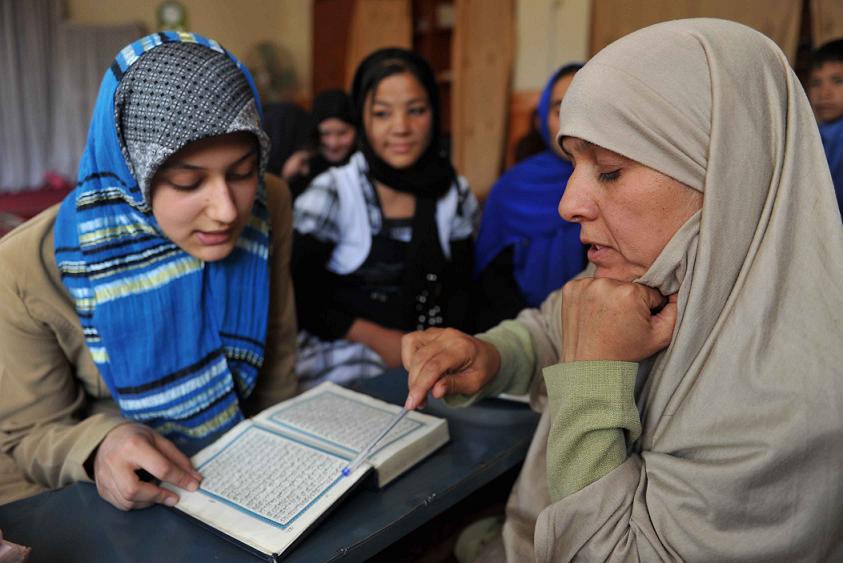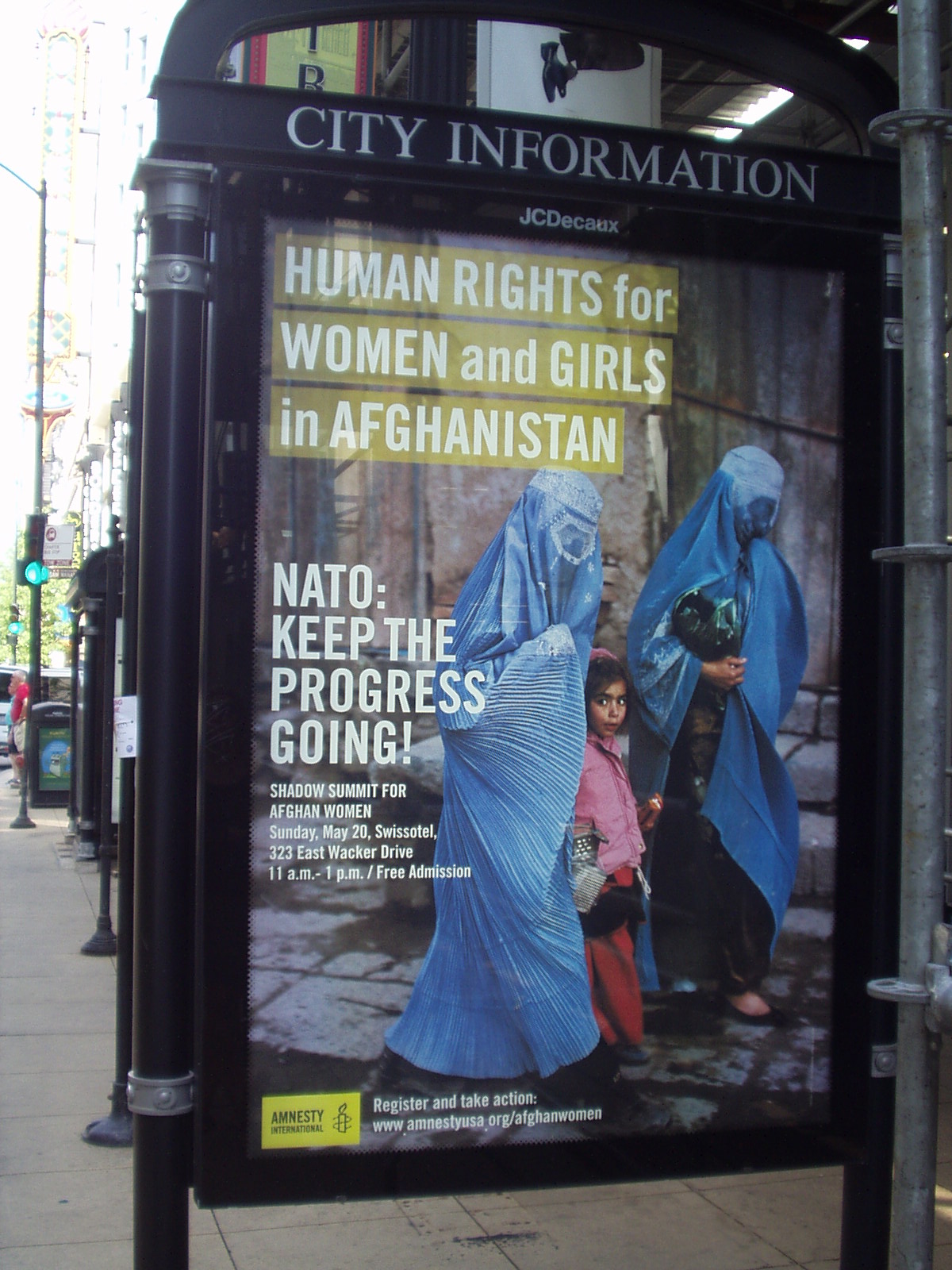
World leaders, dignitaries and reporters will convene in Chicago next week for the 2012 NATO summit, and among the urgent questions they will consider is that of Afghanistan’s future after the 2014 withdrawal of U.S. and allied troops.
Yet Afghanistan’s female leaders were denied a place at the table for these critical discussions—despite Secretary of State Hillary Clinton’s promise that the United States would not forsake the rights of Afghan women.
Indeed, recent developments signal that the significant but tenuous gains Afghan women have made over the past decade are mere bargaining chips in negotiations between U.S., Afghan and Taliban leaders seeking to expedite the transition to Afghan rule. Afghan President Hamid Karzai has proposed a program of “reintegration and reconciliation” with the Taliban that holds grim implications for women and girls, and in March he briefly endorsed an edict issued by a council of clerics that would allow husbands to beat their wives in certain situations and encourage gender segregation in workplaces and schools.

Thankfully, Afghan women refuse to be silenced. As the NATO summit begins next week, two prominent women leaders, Afifa Azim, executive director of the Afghan Women’s Network, and Manizha Naderi, executive director of Women for Afghan Women, will take part in Amnesty International’s May 20 Shadow Summit for Afghan Women, in Chicago. They will not only raise their voices in defense of women’s rights, they will argue that the full political, economic and social participation of women in Afghan society is vital to lasting peace.
Nargis Nehan, head of Equality for Peace and Democracy in Kabul, told NPR:
“We know how to communicate with the rest of the world, and we do have our own constituencies within Afghanistan—not only women, but also men.”
This generation of Afghan women leaders have finished school, graduated from university and won 27 percent of the seats in parliament in 2010. They have spoken to the international media and appealed to the U.N. Security Council to defend hard-won human rights advances—including a new law prohibiting violence against women, early and forced marriage, and the deprivation of access to property, education or healthcare.
The question of history is a thorny one for the United States as it prepares its exit from a decade-long military intervention that has “quagmired” two administrations. But the Obama administration must not submit to political expediency and allow the Afghan government’s overtures to the Taliban and other insurgent groups to threaten women’s rights. At this critical moment, Afghan women desperately need us to stand with them to make sure that their rights are not swallowed up by the quicksand of transitional politics.
Sign our action: Women’s rights are non-negotiable in Afghanistan
